Without proper support, it can be difficult for agencies to increase their services or to use TYPO3 features in a complicated manner.
TYPO3 white-label partnerships allow agencies to collaborate with experienced TYPO3 suppliers, expanding their services and handling more complex projects without depleting their resources.
In this blog, we will cover the white-label TYPO3 agency partnership concept, advantages, and some useful agency growth tactics.
What is a TYPO3 White-Label Partnership?
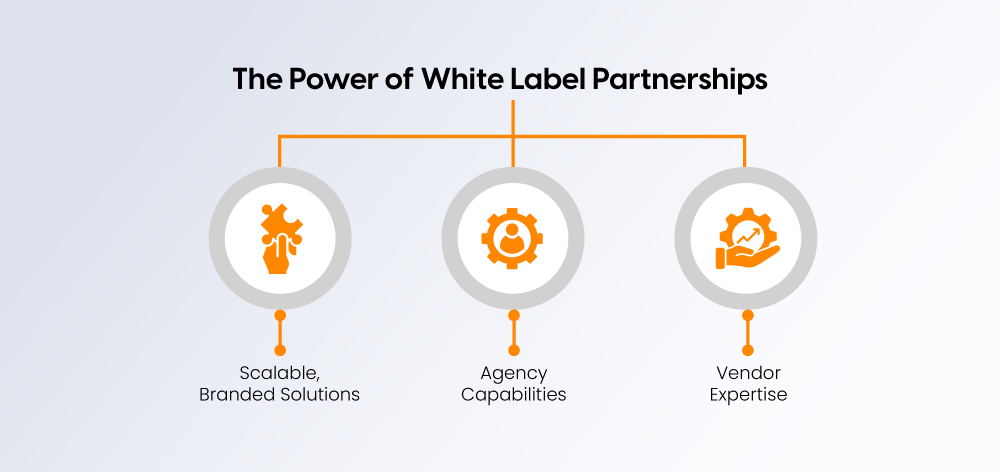
A TYPO3 white-label partnership is a cooperation where a company utilizes the services of a TYPO3 vendor to provide the products under the company's name.
The partner is handling the development, customization, or any other technical services, and the agency is doing the presentation of the work to their clients as its own.
However, with a white-label collaboration, agencies can still gain access to the specialized TYPO3 knowledge without having to do the technical work themselves as opposed to in-house development.
- The agency keeps the client relationships, whereas the partner is focused on delivering the solution efficiently.
- White-label partnerships work particularly well in large-grow situations such as:
- Developing complicated TYPO3 websites or extensions that require advanced skills.
- Broadening the range of services without the need for new teams or tools.
- Handling the situation of very tight deadlines for several projects at the same time.
Such union assist agencies in the scaling of their services, quality maintenance, and faster project delivery with their brand still being the focus.
Key Benefits for Agencies
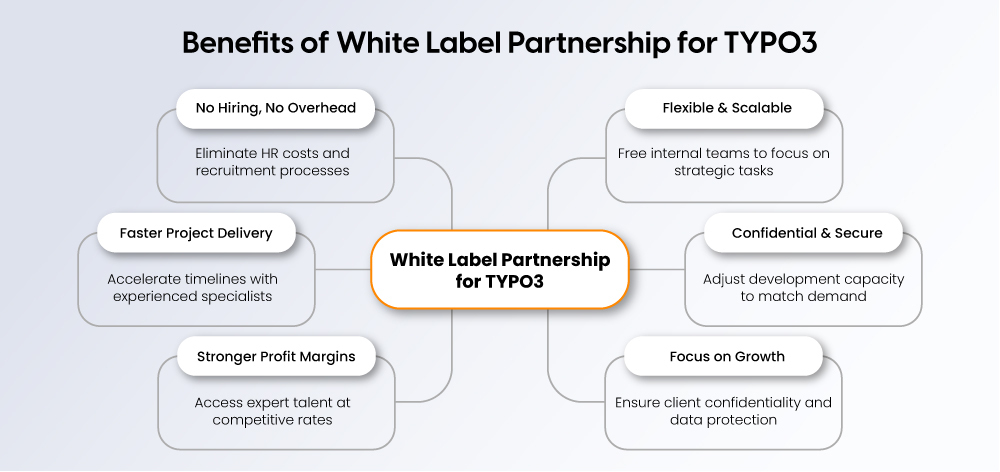
Partnering with a white-label TYPO3 Agency allows digital agencies to extend their offerings while keeping quality and uniformity. The idea is not to hand over the work to others but to set up a support system that enables growth without burdening the internal teams.
Key Benefits:
- No Hiring, No Overhead – Scale your TYPO3 team instantly without HR costs or lengthy recruitment processes.
- Flexible & Scalable – Adjust your development capacity effortlessly to match project demand and workload peaks.
- Faster Project Delivery – Rely on experienced TYPO3 specialists to accelerate timelines and meet tight client deadlines.
- Confidential & Secure – All work is completed under your brand, ensuring full client confidentiality and data protection.
- Stronger Profit Margins – Access expert TYPO3 talent at competitive rates, keeping costs low and profits high.
- Focus on Growth – Free your internal teams from technical tasks so they can focus on sales, strategy, and client success.
Beyond these, white-label TYPO3 agency partnerships offer a range of strategic advantages:
- Expanded Capacity – Agencies can accept more assignments without hiring new developers. Temporary workload peaks or large-scale projects can be managed effortlessly.
- Specialized Expertise – TYPO3-certified developers handle complex integrations, multilingual setups, and custom extensions with precision. Agencies can deliver advanced TYPO3 solutions without in-house specialists.
- Faster Time-to-Market – Shared workloads and predefined TYPO3 workflows speed up project delivery, reducing setup and debugging time. Ideas move quickly from concept to launch.
- Cost Efficiency – Avoid recruitment, onboarding, and long-term commitments for niche TYPO3 skills. Pay only for the resources you use and keep fixed costs low.
By combining capacity, expertise, flexibility, and cost-efficiency, white-label TYPO3 agency partnerships empower digital agencies to grow sustainably while maintaining full control over quality and client relationships.
How White-Label Partnerships Work in Practice
White-label TYPO3 alliances thrive on honesty and teamwork, and the aim is not to disturb the agency's modus operandi but to integrate effortlessly hence maintaining the customers' consistent quality and communication, no matter who is doing the work behind the scenes.
Collaboration Models
- Full Project Outsourcing: The white-label partner takes over the entire TYPO3 project from planning and design to development and testing. The agency handles communication and branding, while the implementation is carried out by the partner.
- Feature-Based Support: The partner only implements the requested features, such as TYPO3 upgrades, performance optimizations, or extension development. This is the best option for agencies that have their own core team but need additional technical support.
Communication & Project Management
- The agency is responsible for client-oriented communication, while partners typically use shared channels like Slack, Microsoft Teams, or email for status updates.
- Tools like Jira, Trello, and Asana are used to monitor task progress and time management.
- Regular progress reports and meetings ensure that both teams are on the same wavelength, minimizing delays and misunderstandings.
Workflow Integration
- White-label partners typically use version control systems like Git to transparently display changes in the source code.
- Shared project boards show milestones, responsibilities, and delivery goals to ensure a smooth process.
- Service Level Agreements (SLAs) define schedules, responsibilities, and response times, ensuring reliability and consistent performance.
In reality, a stellar white-label partnership is like an expanded in-house team, employing the same tools, working towards common goals, and upholding the same quality and standards of the agency’s brand.
Best Practices for Maximizing a White-Label Partnership
Collaborations between white-label TYPO3 agencies are most effective when a clearly defined framework, openness, and clearly formulated ideas exist.
These structures ensure that both teams work on the same wavelength, leading to smooth project execution and greater trust among clients.
Maintain Transparency with Clients
- Explain how projects proceed without disclosing the internal organizational structure.
- A results-oriented approach instills more confidence in clients than the question of who writes the code. The key to realistic expectations lies in building trust.
- Keep communication channels consistent and ensure updates are regular and clear.
Set Clear Project Scopes and Responsibilities
- Clearly define which tasks require attention, be it design, development, QA, or deployment.
- Work with a shared briefing or scope document to avoid different interpretations of tasks.
- Set delivery dates and the number of possible revisions before the project starts.
Regularly Monitor Quality and Feedback Loops
- Conduct regular code reviews during project phases or at specific time intervals to maintain TYPO3 software standards.
- Gather feedback from both internal and external stakeholders to enable continuous improvements.
- White-label teams can quickly identify process gaps and offer you alternative solutions and suitable optimizations.
All of this comes into play especially when a white-label TYPO3 agency is properly managed. A well-organized partnership with a white-label agency for TYPO3 is nothing less than an extension of the agency's own services and a testament to the agency's good reputation.
Conclusion
TYPO3 white-label partnerships allow agencies to grow their business without increasing internal workload. By collaborating with specialized partners, agencies can handle more projects and provide consistent, high-quality solutions while maintaining in-house client relationships.
This concept combines greater capacity, technical expertise, and faster delivery, helping agencies stay competitive, balance resources, enhance profit margins, and build client trust.
Agencies aiming for sustainable growth should consider a partnership with a white-label TYPO3 agency. This approach focuses on collaboration to consistently deliver high-quality TYPO3 solutions, rather than just outsourcing.
FAQs
A TYPO3 white-label partnership is when an external TYPO3 agency handles development or support under your brand name. The partner works behind the scenes, while you manage client communication and delivery.
It lets agencies take on more projects without hiring new staff. By using an experienced TYPO3 associate, agencies can expand capacity, reduce delivery time, and maintain quality.
Only project-related details are shared as needed. The partner works confidentially, and the client relationship always remains with the agency.
Yes. Agencies can opt for full project delivery or get help with specific tasks like upgrades, maintenance, or custom extensions.
Quality is managed through coding standards, version control, and regular reviews. Many TYPO3 agencies also follow SLAs to ensure timelines and performance are consistent.
Contact for Internet agency and TYPO3 projects
Sven Thelemann
Service Partner - Germany



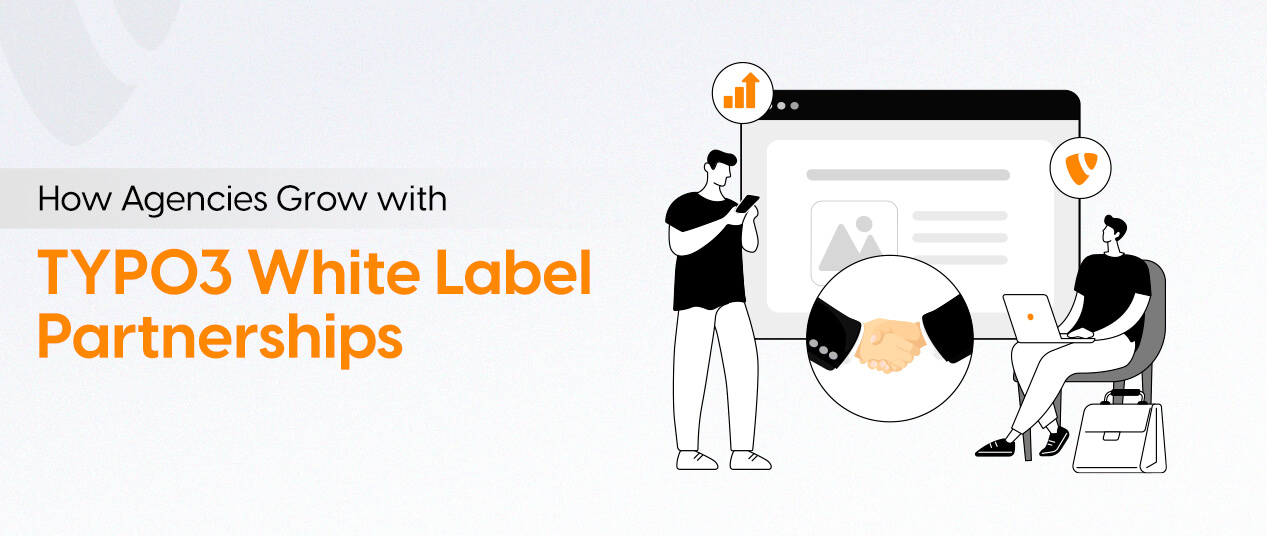
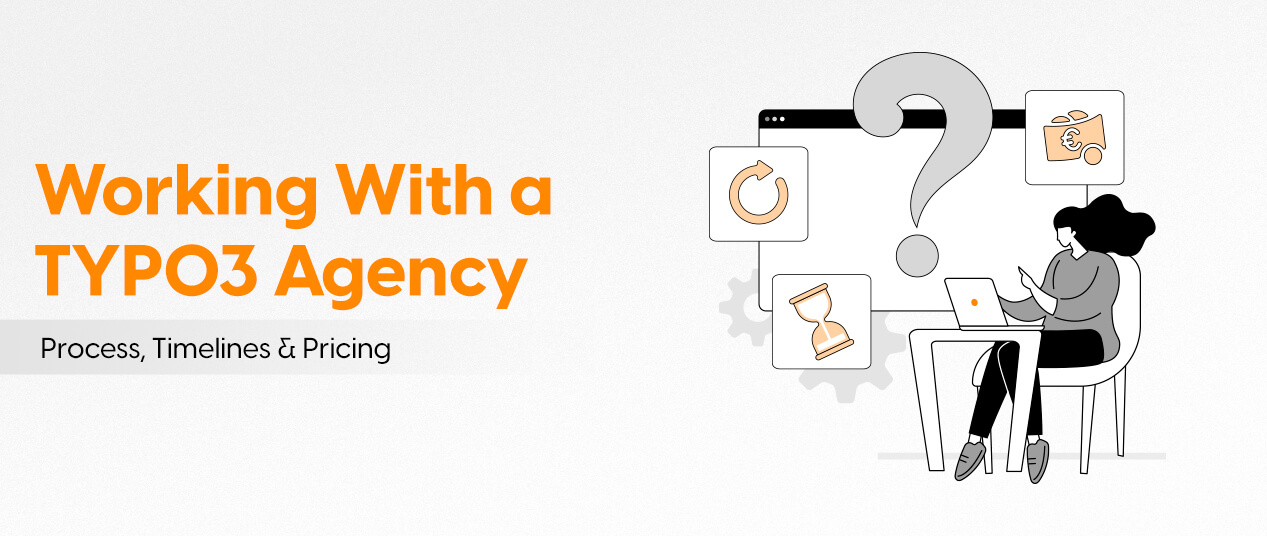
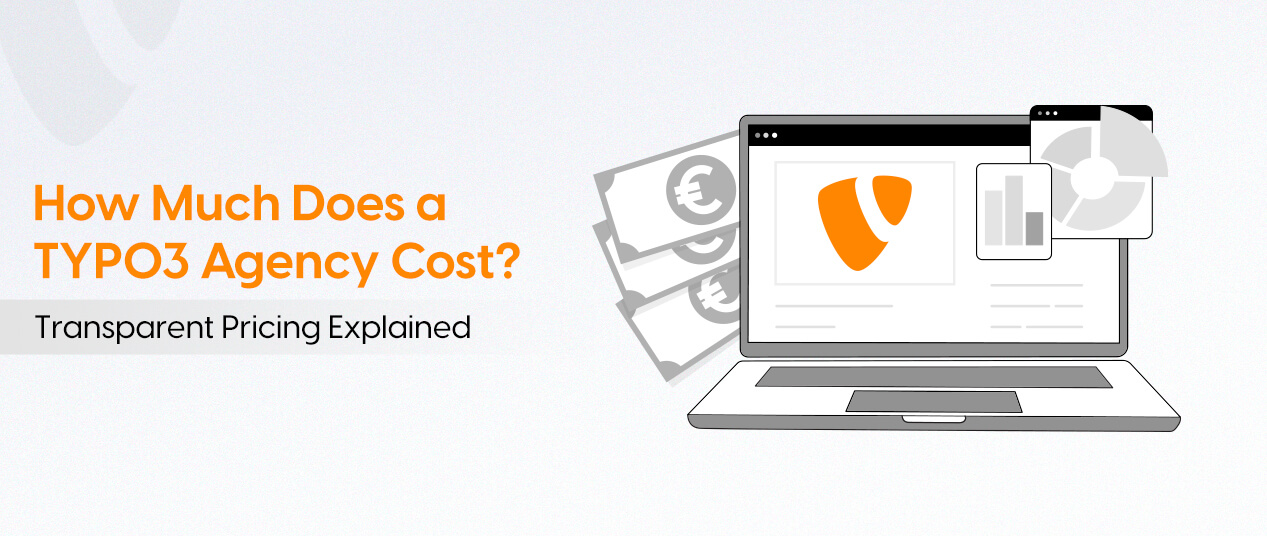
Be the First to Comment